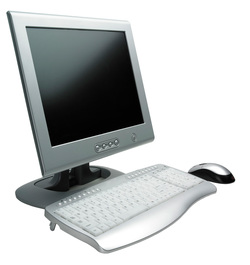 There are lots of great ideas in terms of using computers within the classroom. Sure, we are bound by funding and other challenges, but keep some of the following in mind when considering how to use yours. Too few computers for too many students? You could time-share pairs of students, have them all work together, or have some on computers while others do related curriculum activities. Also, remember that not all students have the same ability level with computers, or even ability to access computers at home, so their usage and support needs in the classroom may differ. Do you plan on using e-communication, prepackaged learning resources, or use the two together? Computer-mediated communication will enable you to contact students and receive communications from them. Chat rooms and access to the Internet can bring a wider input from different sources to support your work. Electronic bulletin boards or forums allow students to post and read messages, and allow file sharing between staff members and students. Teachers can now set up classroom pages for free through www.weebly.com, where they can post messages and information such as photos or worksheets as well as enrichment activities and information, create forums with administrative privileges, and communicate with other staff and students. Worksheets or information summaries can be scanned in and printed. Information can be manually entered into such programs as Kidspiration to organise materials visually, or create an assortment of webs or flow charts than can be printed, or emailed to home for use there. Kurzweil software allows students to copy and paste a passage in and it will read it aloud for the student. With the abundance of e-books now available, this is becoming easier as scanning isn't always necessary. Consider the information accessible via the computer. Is it relevant, accurate, or appropriate? You need to provide "useful" sources (material you have already checked), information about how to use search engines or CD/DVDs which includes the material you have chosen. Each is a valuable approach, and while you might begin with one or the other, you should eventually come to use all three (and others). Can you use a computer to assess student work? You may have the students submit homework via email, develop chat groups where chats can be monitored, or even have students in the classroom simply save their work to their own desktop file folder. What a wonderful opportunity to teach organizational skills in conjunction with computer skills. Teach students how to create subfolders within their folder to organize materials - good copies, drafts, subject folders, etc. Work could be posted if desired and peer reviewed. There are also an abundance of online polls that could be used to submit information. Initially, motivation is high when the students are introduced to the computer. The novelty of computers will attract them, and most students will already be familiar with them, having played some computer games. The spell check is a great support, especially to those having problems with spelling, and keyboards erase handwriting challenges, having great self esteem benefits. How are you using computers in your classroom? Let's share our ideas!
1 Comment
7/31/2012 06:59:13 pm
Nice description about using Computers in the Classroom to Support Children with ASD and Learning Disabilities. I think people should like it . I like this information too and also i am waiting for some new updates.
Reply
Leave a Reply. |
AuthorCasey Burgess has a B.Sc.in Psychology, an M.A. in Education (Curriculum and Instruction), and a Ph.D. in progress in Education (Cognition and Learning). She has 20 years experience with direct service, curriculum development, workshop facilitation, and supervisory experience supporting children who have Autism Spectrum Disorders, and their families. She currently frames her work using a developmental, relationship-based, self-regulation lens. Archives
June 2021
Categories |
 RSS Feed
RSS Feed